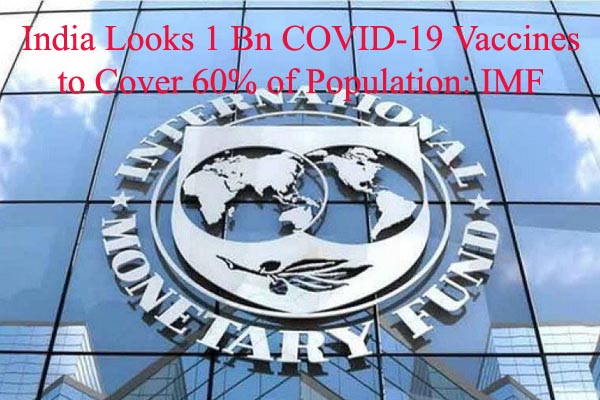
World- According to the IMF (International Monetary Fund) discussion note, India needs to order 1 billion COVID-19 vaccine doses to vaccinate 60 percent of its population and boost investment in new capacity. It also supported centralized procurement by the Center and deferred the second dose as far as possible.
The discussion note, co-authored by IMF chief economist Geeta Gopinath and Ruchir Agarwal, who is an economist at the agency, proposed that India receive ” India will need to immediately place sufficient vaccine orders of about 1 billion doses through contracts that incentivize investment in additional capacity and augmentation of the supply chain”.
The note also called for the government to centralize vaccine procurement. The Center has asked the states to purchase jabs for the age group of 18-44 on their own. The IMF on Friday, May 21, unveiled a $ 50 billion proposal to end the COVID-19 epidemic by vaccinating at least 40% of the population in all countries by the end of 2021 and at least 60% of the population by the first half of 2022.
The IMF said the crisis killed more than 3.5 million people worldwide, and estimates point to highly disproportionate health prospects in 2022, posing a “serious risk to the world”. IMF managing director Kristalina Georgieva said at a health summit organized by the European Commission and a group of 20 major economies that it makes sense to promote donations to ensure a rapid end to the epidemic for wealthy economies.
The proposal is based on ongoing efforts by the COVID-19 Tools (ACT) Accelerator, access to the United Nations, the World Health Organization, and other groups. The plan would cost some $ 50 billion to implement, of which $ 35 billion would be paid for by grants from wealthy countries, private and multilateral donors, and the remaining $ 15 billion using funding with little or no interest available from multilateral development.
The IMF authors said that the G20 countries had already recognized the need for grants of about $ 22 billion to deal with the crisis, requiring some $ 13 billion in additional grants to reach $ 50 billion. The plan calls for investment of approximately $ 8 billion to advance financing, vaccine donations, and ensure free cross-border flow of raw materials and finished vaccines, as well as diversify and increase vaccine production capacity worldwide.
The IMF has estimated that some 1 billion doses may be donated this year, even though countries have prioritized their population and by the beginning of 2022, one billion additional doses should be produced to handle the risk, such as new variants that required booster shots.
